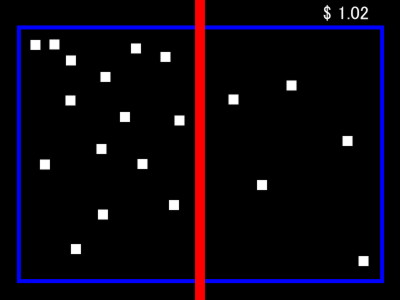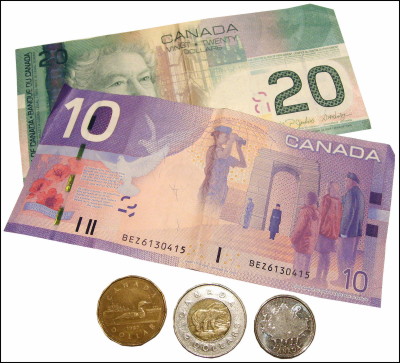Consumers who immediately purchase "eco" goods show selfish behavior with stingy

Many products that sell "Eco", such as hybrid cars, low-power consumer electronics products, organic clothing and organic foods, "natural" detergents and shampoos that are said to not contaminate water, have appeared. It is also true that these products are generally more expensive than competitors, but even if a little value is added, purchasing goods that are "environmentally friendly" does not seem to have done something good and there are not many people who feel good Is it?
However, depending on the "earth-friendly choice", do you feel as if you have achieved a good all-day quota, or whether the psychology to recover high-value shopping items works, or "eco" products People immediately after purchasing, tend to show selfish behavior with miseries or tend to jerk in the gameUniversity of TorontoIt became clear by research of.
Details are as below.Can buying organic produce and natural shampoo turn you into a heartless jerk? - By Rebecca Tuhus - Dubrow - Slate Magazine
University of TorontoRotman Business Administration Graduate SchoolofNina MazarAssociate ProfessorChen-Bo ZhongThis research by Mr.Psychological ScienceIt was announced in the magazine.Article (PDF file)Is published on the website of the university.
In the research, first of all, 59 items of students (32 women) at the University of Toronto were asked to purchase "ecologous" products, which is regarded as a high ethical standard and social consideration of their purchasers, "We confirmed by evaluating purchasers of products and ordinary products.
People who showed pictures of high-class restaurants from past studies improved meal manners immediately afterwards, people who showed their logo showed their creativity, and the psychological latent potential in the environment It has become clear that cues (clues that cause unexpected reactions) influence behavior.

Therefore, it is expected that those who are placed in an environment that sees "eco" products symbolizing "ethics" or "social consideration" will make it easier for people to take ethical and social action through their cues I will. However, in addition to looking at it, when it comes to actually purchasing "eco" goods, it seems that it is expected that it will become easier to take actions that have deteriorated since then.
This is a phenomenon called "Moral Credential" (Moral's Certificate) or "Moral Licensing" (moral license) among social psychologists, for example, actions to indicate to the surroundings that it is not sexist Immediately after taking a candidate for a woman's promotion to a post which does not do), a person who has no choice but to be considered sexistic (to propose a male candidate for a typical "man's work") It is already clear that things tend to be taken and that this also applies to racist behavior. In addition, it is also clear that the rate of participation in donations, blood donation, volunteer activities, etc. is low immediately after being reminded of past moral acts.
In order to verify these hypotheses (those who only saw eco products improves moral shortly afterwards, those who purchased actually drop moral immediately afterwards), Associate Professors Mazar et al. I asked students (96 women) to participate in an experiment for one hour in exchange for the unit. Subjects were randomly assigned to the four situations "purchase ecological products", "purchase ordinary products", "evaluate eco-friendly products" and "evaluate ordinary products", and thereafter tasks unrelated to the previous task As "Dictator's gameI participated in a game called "Game".
Subjects who passed through a booth with a personal computer were 2 of 2 "eco-friendly shops" (nine items of 12 items are "eco" items) and "ordinary shops" (3 items of 12 products "eco" In one of the two online shops, "Evaluate the item" (evaluate the product design or description of the item numerically) or "Purchase of goods" (put items within a total of $ 25 into the shopping basket, 1 to 25 people Pseudo purchase that person actually hit those goods).

After that, I participated in a "dictator's game" sharing with an anonymous partner in another room with 6 dollars as the base. It was guaranteed that the anonymity of the subject could be preserved, as it was able to receive the amount that did not divide out of this 6 dollars, in fact the "partner" was fictitious and all of the subjects acted as "dictators" It was not revealed that it was assigned. as a result,People who "evaluate items" at "eco friendly shops" divide more money than people who "evaluate products" at "regular shops"There is a tendency,People who "purchase goods" at "eco-friendly shops" have a small amount of money to divide from those who "purchase goods" at "regular shops"There was a significant correlation that there is a tendency. This experiment showed that altruistic behavior declines immediately (selfishness) immediately after purchase of ecological products.

Secondly, not only will we not actively show social consideration, but also we will not only show social consideration, but also will be able to "moral" enough to justify (subconsciously) non-moral acts such as "lies" and "stealing" In order to verify whether we can obtain a license, we asked 90 undergraduates (56 women) to participate in the experiment in exchange for 5 Canadian dollars (about 415 yen).
As in the previous experiments, the subjects initially purchased "products" at either "ecological store" or "regular store". There is no "product evaluation" this time, and envelopes with a total of 5 dollars in coins and bank notes of various units are prepared in the booth where the personal computer was installed. As a next task, the subject will play a personal computer game that can earn money.
In this game, 20 dots appear in the box separated by vertical lines at the center, and the subject answered by pressing the key to which side of the line many dots appeared, and there were many dots on the left side If you get one correct answer by 0.5 cents, on the right side you get 5 cents per time. The way the appearance appears to be easy to see how many dots are left and right, such as 15, 5, 16, 4, 17 and 3 etc, the examiner of the experiment said, "For accurate I need results. "

※ It is an image image
Before the actual game started, the subjects practiced 30 trials, and in this exercise you can not actually get the money, but the amount you were supposed to get will be displayed at the top of the screen. With this exercise, subjects are actually realizing that money responds to the pressed keys regardless of whether they are correct or incorrect. Therefore, when the actual game begins, the subjects are exposed to the dilemma of entering accurate answers or getting lots of lying (keep pressing "right" regardless of answers) getting a lot of money.
Actual games have 90 trials, 40% (36 times) of which there are many dots on the right side. Therefore, if the correct answer rate is 100%, subjects will get $ 2.07 for a task of about 5 minutes. When the 90th time is over, the total amount is displayed on the screen and you are instructed to bring that amount from the prepared envelope. Therefore, there are opportunities for "stealing" not only to "lie" in the game but also to take away more money than the amount you got in the game.

As a result of the experiment, the subject who purchased the item at "ordinary shop" answered that many dots appeared on the right side with 42.5% trials on average, which is not much different from the actual correct answer (40%),Subjects who bought the item at "Eco-friendly store" answered that many dots appeared on the right side at 51.4% trial and had "lies" to gain more moneyIt is suggested. As a result, subjects who bought products at "eco-friendly shops" earned an average of $ 0.36 more than subjects at "regular shops".
Also at the end of the opportunity to "steal" money,Subjects who bought the item at "ecological store" were stolen from the envelope by an average of 0.48 dollar more than the subjects of the "ordinary shop"Therefore, in total, the subjects of "eco-friendly shops" seemed to have brought back an average of 0.83 dollars more than the subjects of the "regular shop" after the experiment. This indicated that "savings of good deed" enough to cancel "lies" and "stealing" under subconscious by buying "eco" goods was made.

So, what is the best way to prevent the moral loosening and moral decline after doing a good thing due to this psychological phenomenon called "Moral Credential"Knowing that such "justification" knows that "right after good deeds tends to take actions that have deteriorated moral" and beware of itIs listed as the best defense measure. Recording your own faults, remembering the moral acts you have done in the past, checking your own ethical ideals,Mahatma GandhiIt is also effective to think about people you respect, such as those who want to model and familiarize them.
India's independent father, Mahatma Gandhi.

Also, as long as "buying eco-friendly products" is not a "slightly good thing" but a matter of course, every time you say "doing a good thing" you will not feel relaxed. Every time I turn off the electricity in a room not in use or throw away a PET bottle in a dedicated trash can for recycling, is not it quite unusual for someone who will feel proud to feel "good things!"?
People who always want to be human, environmentally friendly and ethical without saying "one day's best", may wish to keep in mind the mechanism that morality relaxes after good deeds.
Related Posts:
in Note, Posted by darkhorse_log







